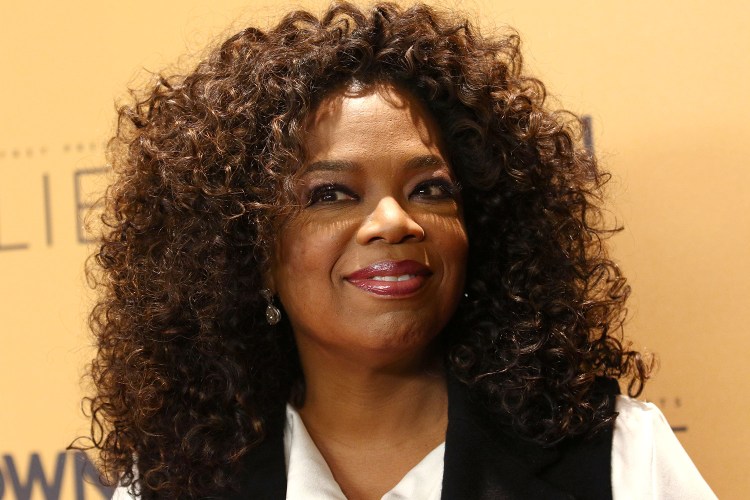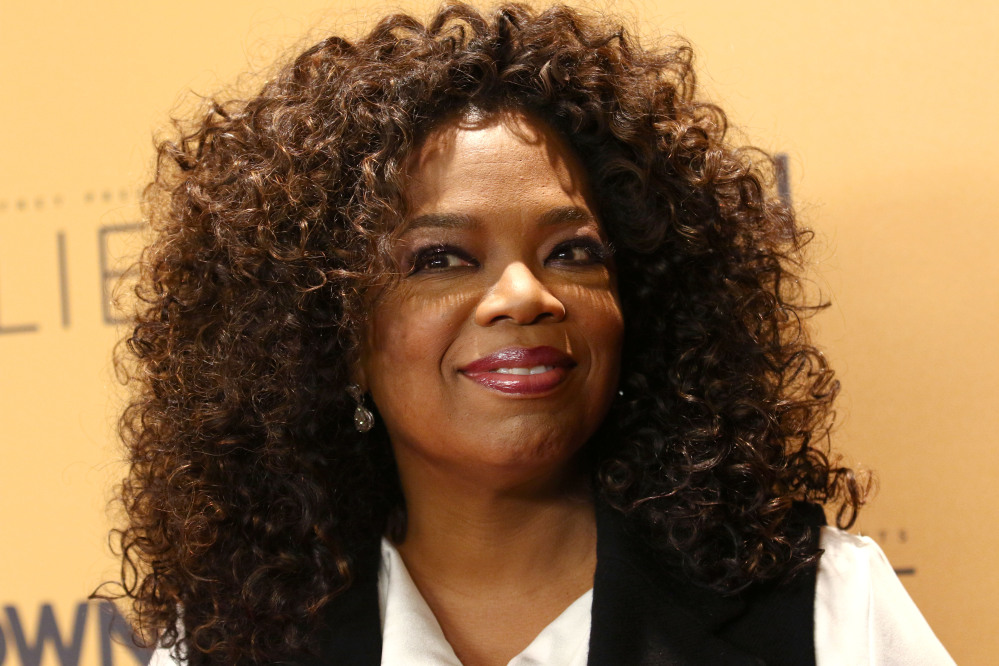When Weight Watchers said Monday that billionaire media empress Oprah Winfrey would be buying a 10 percent slice of the company, its stock value quickly doubled – a rare morsel of good news for a struggling diet giant facing its darkest year in decades.
But the calorie-counting pioneer, famous for its weight-loss support groups and frozen entrees, faces problems that perhaps even Winfrey can’t help knock down, including free alternatives, fitness trackers and a broader cultural shift away from the diet-heavy mindset that helped Weight Watchers thrive.
Winfrey is spending about $43 million, securities filings show, to buy company shares priced at $6.79, down from about $80 at their 2011 peak. Under a five-year agreement, the company gains the right to use her name, image and likeness, and Winfrey will use the Weight Watchers mobile app, work with a Weight Watchers coach and make appearances on the diet giant’s behalf.
On top of her 10 percent stake, Winfrey also will join the company’s board and get the option to buy another 5 percent of the company at $6.97 a share, nearly half what the stock has grown to since her announcement.
“Weight Watchers has given me the tools to begin to make the lasting shift that I and so many of us who are struggling with weight have longed for,” Winfrey said in a company statement. “I believe in the program so much I decided to invest in the company and partner in its evolution.”
A SHADOW OF ITS FORMER SELF
Founded in the early 1960s by a New York housewife, Weight Watchers applied a conversation-heavy, group-therapy model to the frustrations of dieting: “People eat because they’re lonely,” one member told Time in 1967. “When you come to Weight Watchers, you’re not lonely any more.”
In the decades since, Weight Watchers has grown into a corporate titan of weight loss for one of the fattest countries on the planet, selling low-fat prepared meals, partnering with singers such as Jennifer Hudson and Jessica Simpson, and hosting support groups and diet classes for its calorie-counting clientele.
But amid a weight-loss world of free calorie-counting apps and activity trackers, Weight Watchers now looks like a shadow of its former self. Its revenue fell 19 percent, to $1.48 billion, between 2011 and 2014, because of declining interest for its meetings, snack bars, online subscriptions and licensing.
Before Monday, the company’s stock had shed 72 percent of its value this year, dropping to its lowest level since the company went public in 2001. Even after the Oprah stock bump, the company’s market value is $400 million, down from $6.2 billion in 2011.
Through an advertising blitz, Weight Watchers has sought to recast itself as a real-life support coach in a digital-diet world. The company has joked about the difficulty of fighting off constant cravings, and made its Super Bowl debut this year with a darkly satirical ad likening junk food to drug addiction.
SLIMMED DOWN BY COMPETITION
Company executives have said modern customers want to lose weight not through strict diets but with a “more holistic mindset,” promoting fitness, healthier eating and a focus on emotional well-being. The company has invested in 24/7 diet consultations and services such as personal coaching, which dispatches personalized health advice through text messages, phone calls and emails.
“A weight-loss plan for the body,” the company said in an ad called “My Butt” that followed a woman’s behind through the trials of life. “A support system for the brain.”
But the company has yet to turn a corner on its business. Weight Watchers sales have tumbled about 20 percent, and profits about 50 percent, in the first six months of the year. To invest in its turnaround, the company said earlier this year that it would launch a $100 million cost-cutting plan that included laying off top executives.
About 800,000 people last year went to Weight Watchers meetings, and a group nearly twice that size has subscribed to its smorgasboard of online coaching and support.
But many others have instead downloaded an app like MyFitnessPal that can track movement, calories or fitness goals, or paid for a fitness tracker like the FitBit that offers more immediate reassurance at a one-time price.
Some analysts have also shared doubts that Weight Watchers’ turn from in-person to online dieting may win over new clients.
“The potential value of 24/7 support and personal coaching,” Credit Suisse analysts wrote in March, “may not be fully understood by new potential recruits, and this product change may struggle to be the (company’s) recruitment trend panacea.”
Send questions/comments to the editors.




Success. Please wait for the page to reload. If the page does not reload within 5 seconds, please refresh the page.
Enter your email and password to access comments.
Hi, to comment on stories you must . This profile is in addition to your subscription and website login.
Already have a commenting profile? .
Invalid username/password.
Please check your email to confirm and complete your registration.
Only subscribers are eligible to post comments. Please subscribe or login first for digital access. Here’s why.
Use the form below to reset your password. When you've submitted your account email, we will send an email with a reset code.